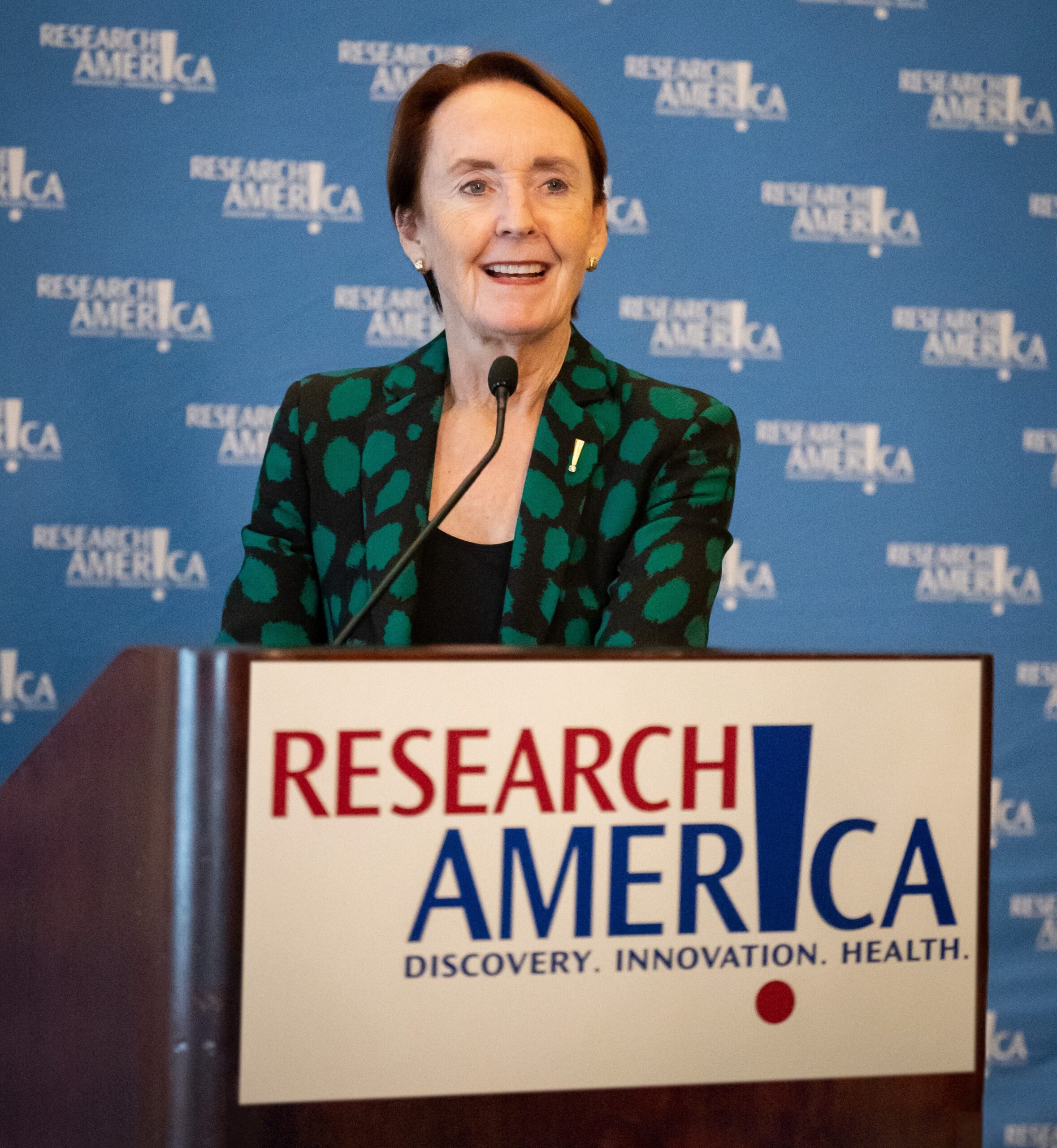Facing Down Existential Threats

Dear Research Advocate,
In his 2023 State of the Union address, President Biden praised the progress made when members of Congress and the Administration work together to support essential national priorities, including strengthening investment in medical research, science, and technology (read our statement). As we face a broad array of existential threats – pandemics, climate change, the host of diseases robbing us of health and time – science and technological strength is not an option; it is an imperative.
Determined and Formidable: American S&T infrastructure and innovation investments are crucial to ensuring we maintain our global leadership. A newly released “Rise of China” fact sheet from the Science and Technology Action Committee presents a series of charts that demonstrate the challenge China presents to U.S. global leadership in R&D investment. At the turn of the century, America was outspending China almost 8 to 1 on R&D; today, we’re almost even.
Our recently released public opinion survey shows only a slim majority of Americans (52%) believe the U.S. will be the world leader in S&T in the year 2030. Notably, 77% of Americans are concerned that China will surpass the U.S. as the world’s leading S&T power, and 6 in 10 believe Congress should invest more taxpayer dollars to advance S&T in the U.S.
On The Hill: Yesterday, the Oversight and Investigations and Health Subcommittees of the House Energy and Commerce Committee held a joint hearing titled: “The Federal Response to COVID-19.”
Witnesses at the four-hour hearing included Larry Tabak, DDS, PhD, Performing the Duties of the Director of the NIH; Robert Califf, MD, FDA Commissioner; and Rochelle Walensky, MD, MPH, CDC Director. Each spoke to the role of their agencies in the federal response to the COVID-19 pandemic, including lessons learned as we approach the end of the COVID-19 public health emergency. One clear lesson learned is the value of resources and policies that empower rapid private-public responses. (See also this terrific review in Science of the lessons learned from pandemic R&D.) It’s estimated that 3+ million lives were saved in the U.S. as the result of that response.
As Congress debates the prospect of federal budget cuts in the context of raising the debt ceiling, it’s critically important for advocates to make the case to fund the medical and public health research necessary to save lives. Any media piece on the federal budget, on COVID-19, or on another pressing medical or public health issue opens the door for a letter to the editor from you on the importance of the federal government prioritizing science and technology, faster medical progress, public-private partnerships and public health vigilance. Use our tips for writing a “letter to the editor” and consider this sample letter to get you started.
The State of Coronavirus Vaccines: Nature recently published a “graphical guide to the next generation of coronavirus vaccines,” which serves as an excellent primer/refresher on ways different vaccines work against the coronavirus and how both the virus and vaccine technology are adapting over time. It’s a pointed reminder of the challenges we face in outpacing COVID-19 and future viruses – and it highlights the need for ongoing public and private investment in medical and health research.
ICYMI: Our off-the-record, alliance member-only discussion earlier this week explored the R&D-relevant legislative priorities of the 118th Congress with experts from both sides of the aisle. If your organization is not yet an alliance member, touch base with Joel Nepomuceno about joining so you can attend similar discussions in the future.
Two Alliance Discussions Next Week: Our members’ support makes it possible for a broader community to participate in many of our alliance discussions. Next week’s discussions are open to everyone, so join us – and keep an eye on our event calendar; we host more than 50 public events every year!
- Tuesday, February 14, from 1 to 2:30 p.m. ET – Join us for a discussion with the leadership of the Michael J. Fox Foundation for Parkinson’s Research, recipient of the 2023 Paul G. Rogers Distinguished Organization Advocacy Award.
- Wednesday, February 15, at noon ET – Join us for a conversation with FDA Deputy Commissioner for Policy, Legislation and International Affairs, Andi Fristedt. We will discuss FDA’s 2023 priorities under the new drug and medical device user fee legislation, including the clinical trial diversity provisions included in the FY23 Omnibus appropriations legislation, along with other issues affecting patients, researchers, and industry.




